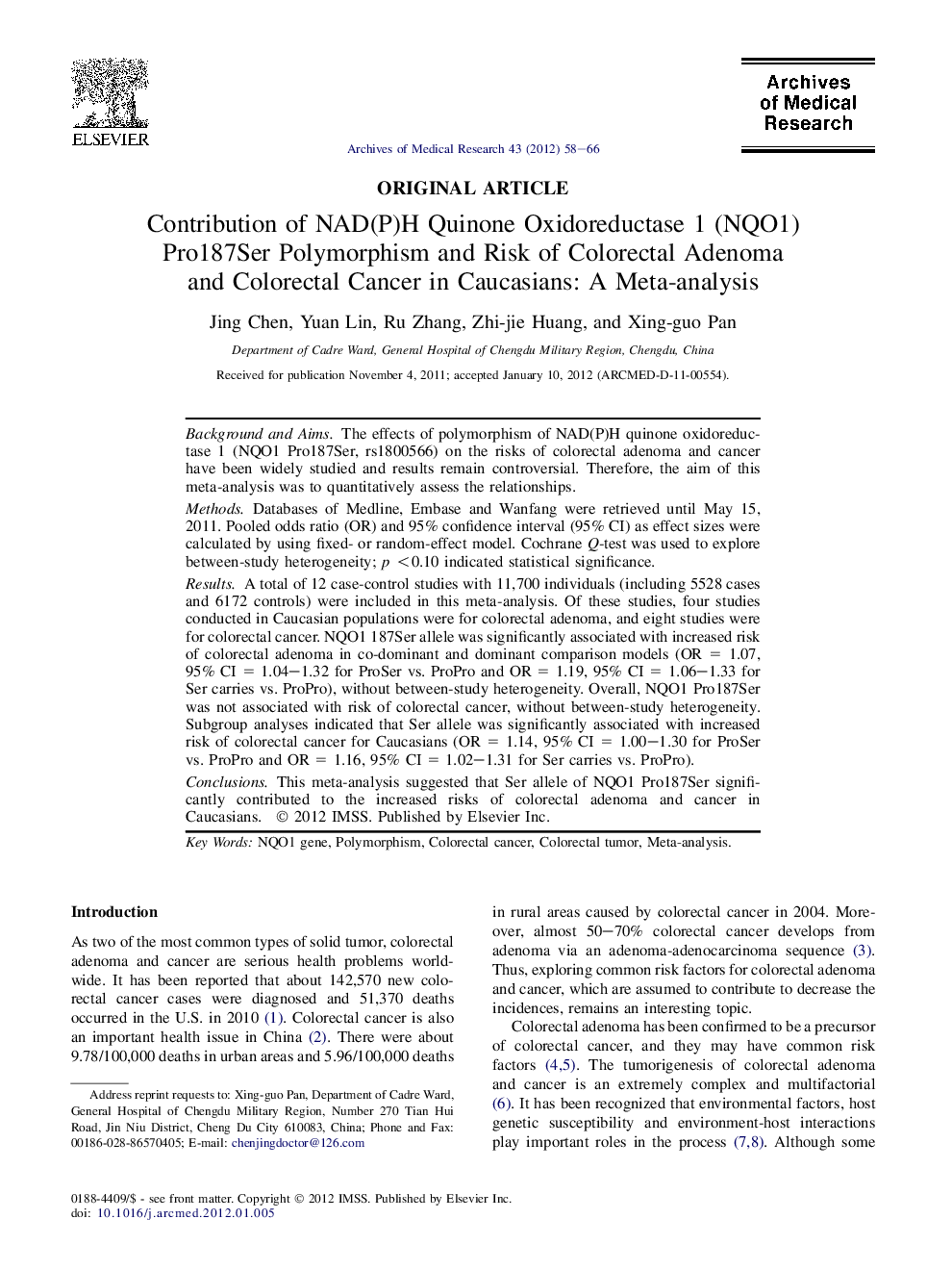| Article ID | Journal | Published Year | Pages | File Type |
|---|---|---|---|---|
| 3446972 | Archives of Medical Research | 2012 | 9 Pages |
Background and AimsThe effects of polymorphism of NAD(P)H quinone oxidoreductase 1 (NQO1 Pro187Ser, rs1800566) on the risks of colorectal adenoma and cancer have been widely studied and results remain controversial. Therefore, the aim of this meta-analysis was to quantitatively assess the relationships.MethodsDatabases of Medline, Embase and Wanfang were retrieved until May 15, 2011. Pooled odds ratio (OR) and 95% confidence interval (95% CI) as effect sizes were calculated by using fixed- or random-effect model. Cochrane Q-test was used to explore between-study heterogeneity; p <0.10 indicated statistical significance.ResultsA total of 12 case-control studies with 11,700 individuals (including 5528 cases and 6172 controls) were included in this meta-analysis. Of these studies, four studies conducted in Caucasian populations were for colorectal adenoma, and eight studies were for colorectal cancer. NQO1 187Ser allele was significantly associated with increased risk of colorectal adenoma in co-dominant and dominant comparison models (OR = 1.07, 95% CI = 1.04–1.32 for ProSer vs. ProPro and OR = 1.19, 95% CI = 1.06–1.33 for Ser carries vs. ProPro), without between-study heterogeneity. Overall, NQO1 Pro187Ser was not associated with risk of colorectal cancer, without between-study heterogeneity. Subgroup analyses indicated that Ser allele was significantly associated with increased risk of colorectal cancer for Caucasians (OR = 1.14, 95% CI = 1.00–1.30 for ProSer vs. ProPro and OR = 1.16, 95% CI = 1.02–1.31 for Ser carries vs. ProPro).ConclusionsThis meta-analysis suggested that Ser allele of NQO1 Pro187Ser significantly contributed to the increased risks of colorectal adenoma and cancer in Caucasians.
